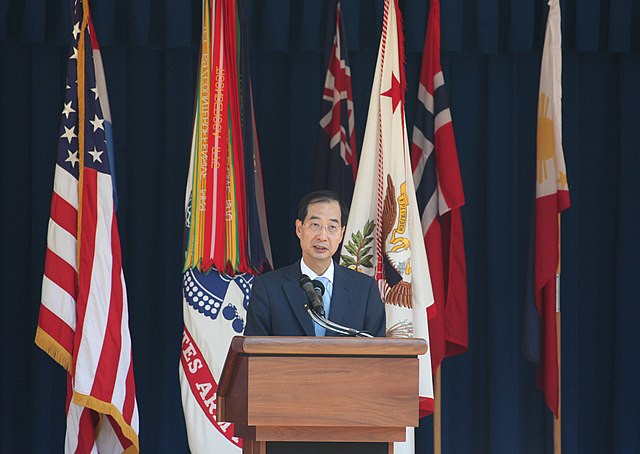South Korea's liberal opposition party scored a landslide victory in Wednesday's parliamentary elections, putting President Yoon Suk Yeol in a challenging position for the remaining three years of his term. The Democratic Party and its satellite party won a combined 175 seats in the 300-member National Assembly, while Yoon's ruling People Power Party (PPP) secured only 108 seats, according to South Korean media tallies.
The election results are widely seen as a referendum on President Yoon's performance, with his approval ratings staying below 40% for most of his two years in office. Public sentiment toward the president and the ruling party has soured in recent months due to soaring food prices and a prolonged medical crisis. "I will humbly accept the will of the people and reform my administration," Yoon said, according to his chief of staff, Lee Kwan-seop.
In response to the electoral defeat, Prime Minister Han Duck-soo and all senior presidential advisers submitted their resignations. PPP interim chief Han Dong-hoon also stepped down, admitting that the party failed to win the people's trust. "I apologize to the people on behalf of our party, which wasn't good enough to win the people's choices," he said during a news conference.
The opposition's victory is expected to set back Yoon's domestic agenda and weaken his grip on the party. "The results of the parliamentary elections are not the victory by the Democratic Party, but the great victory by our people," said Democratic Party leader Lee Jae-myung, who lost the 2022 presidential election to Yoon.
While the opposition bloc fell short of securing a two-thirds supermajority, which would have allowed them to override the president's veto power and single-handedly impeach the president or hold a referendum to amend the constitution, Yoon is still expected to face increased pressure to cooperate with the opposition.
The election outcomes may also restrict Yoon's foreign policy agendas, such as strengthening ties with Japan. His resolution for the thorny issue of forced labor during colonial rule, which helped thaw the two governments' relationship, was deeply unpopular at home. Experts suggest that he may no longer be able to push ahead with such initiatives.
Voter turnout reached 67%, the highest in 32 years for a parliamentary election, according to the National Election Commission. The incoming parliament is set to begin its four-year term on May 30.
As South Korea grapples with economic challenges and public livelihood issues, both the ruling and opposition parties must now work together to address the concerns of the people. "Now, the elections are over. Both the ruling and opposition political parties must pull together all their strength to resolve economic and public livelihood problems," said Lee Jae-myung.
President Yoon, who wields executive power in South Korea, will likely maintain his major foreign policies. However, with the opposition's control of parliament until 2027, he will face increased scrutiny and political pressure from the Democratic Party throughout the remainder of his term.
The resignation of Prime Minister Han Duck-soo, who would take power if the president becomes incapacitated, further underscores the significance of the opposition's victory and the challenges that lie ahead for Yoon's administration.






